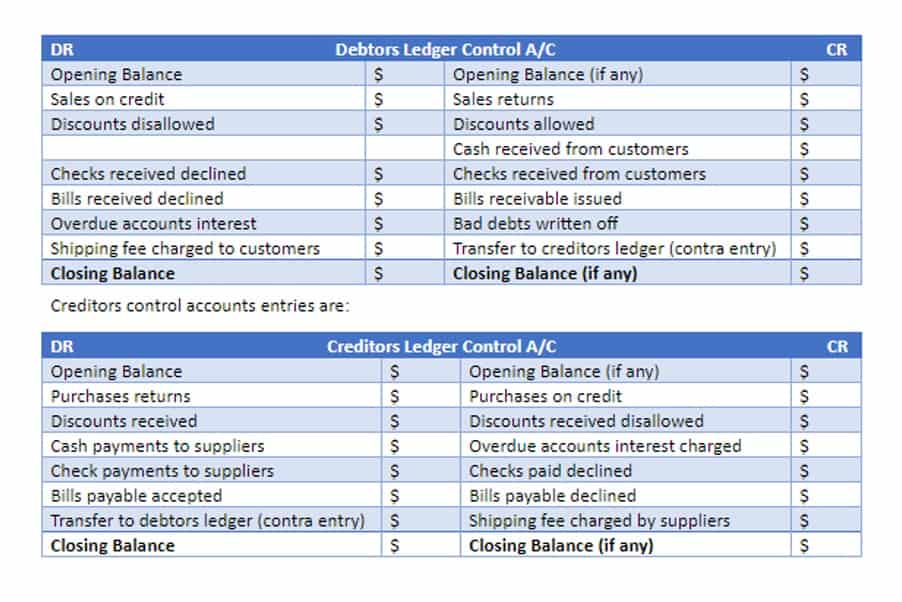Content

We’ll show you examples of how to record a transaction as both a credit and debit later on. Below, we’ll break bookkeeping down to its most basic principles. A financial expert can give individualized bookkeeping advice specific to your unique business while providing a more in-depth look at the basic principles we cover here. Another important tip is to always keep a backup copy of your financial records. This way, if something happens to your computer or you lose your records, you will still have an extra copy readily available.

As a small business owner, you may be tempted to combine your business finances and your personal finances—if you don’t make an effort to keep them separate. But you can set up separate accounting systems with little effort by opening a business bank account and using a credit card exclusively for business. When your business income mixes with your personal accounts, it doesn’t make more money—it just makes a mess. Centuries ago, businesses would record their financial transactions in a physical book called the general ledger . For freelancers, accounting might not be first on the list of business priorities. However, taking the time to put some basic structures in place can save you a big headache when it’s time to file taxes. It’s also important to keep track of your clients and invoices so that you can collect payments in a timely manner.
Decide how often they should be done and establish a system of checks to ensure no task is overlooked or forgotten. Which expenses will increase or decrease with a change in sales? These are your variable expenses and are the most difficult to predict. For instance, direct labor costs and direct materials cost might be best predicted as a percentage of sales. FreshBooks vs. Xero FreshBooks and Xero are two popular QuickBooks alternatives.
Separate Personal And Professional Accounts
You can spot financial problems and fix them before they get out of hand by going over your books at regular intervals. This is especially important at the end of the year or quarter when you or your bookkeeper add up all those deposits so you can calculate your taxes. You could mistakenly include non-income deposits that would inflate your income and cause you to pay more than you should.
- There are plenty of options to choose from in this regard, so you can find a system that best works for you.
- No matter how you feel about bookkeeping, it’s one of those tasks no business owner can avoid forever.
- Whichever system you choose, set aside a block of time every week to balance your books.
- He founded Solution Scout to provide the most helpful answers to questions about business solutions.
- D. Hire a local bookkeeper to provide the services you need, and turn the books over to your certified public accountant for planning and tax preparation at the end of the year.
- To make your bookkeeping as simple as possible, don’t let your personal finances mix with those of your business.
From a supervisory role and internal control system standpoint, it’s still critical to have a basic working knowledge of the software and procedures. Adopting some good habits can help stave off costly errors when it comes to recordkeeping.
Be sure to have them show you how to make changes to these lists as necessary. Once these lists are complete, everyday transactions like issuing invoices and paying bills are very easy. By eliminating all personal transactions from your business accounts, you’ll greatly reduce the number of transactions your bookkeeper must categorize and reconcile. I’ve personally done the bookkeeping for several small businesses where more than half of the transactions in their “business” accounts were personal. Sorting through your personal transactions is time-consuming, expensive, and can lead to mistakes.
Of the 28 million small businesses in the USA today, almost22 million of themare ‘nonemployers’. Limiting your personal liability in the event that your business is sued. “Find someone you get along with and who will partner with you on your long-term goals rather than just filing your taxes,” Hattrup says. If you do decide to outsource your bookkeeping, both Eversmann and Hattrup have suggestions on what qualities to look for in an individual or a firm. Can feel daunting, particularly if this is your first rodeo. But it doesn’t have to be difficult or painful, especially if you build healthy habits into your routine from the get-go. Rieva Lesonsky is president and CEO of GrowBiz Media, a custom content and media company focusing on small business and entrepreneurship, and the blog SmallBusinessCurrents.com.
These bookkeeping tips and best practices will help your business improve its financial recordkeeping. Bookkeeping may seem complicated, but you actually don’t need to be an accounting professional to keep good financial records.
Important Bookkeeping Tips For Small Businesses
Are you one of those hardworking DIY people who does your small business bookkeeping? If you do, you probably spend nights wading through invoices, reconciling bank statements, tracking down lost receipts, and performing other tedious tasks? Your DIY approach to critical back-office duties is a sure way to save money. Many programs on the market are cloud-based, allowing your employees to clock in and out using a smart phone or computer. Time tracking software automates a portion of your payroll process and can help eliminate clerical hours. It can also save you money as clocking in and out can give a more accurate picture of the hours worked, as opposed to a manual card.
Bookkeeping may feel like a headache sometimes, but we’ve got five simple tips to make it easier and help you to stay on top of your financial information. Whether it is Xero, Quickbooks Online, or another accounting system, migrate your books and financials over to a cloud platform. The benefits are endless and allow for real-time data to be entered and accessed from anywhere on mobile or desktop. No matter how you choose to handle your bookkeeping, you need to protect your financial data in case of disaster. Your disaster plan should include a secure method for backing up your documents at an offsite location.

When you’ve finished your checklist, you should be up to date with your current records. A simple bit of work every week will ensure you have clean books all year.
Make Everything Easier With The Right Technology
A receipt is what you give the customer after the transaction has been finalized and completed. This post is to be used for informational purposes only and does not constitute legal, business, or tax advice. Each person should consult his or her own attorney, business advisor, or tax advisor with respect to matters referenced in this post. Bench assumes no liability for actions taken in reliance upon the information contained herein. Software such as QuickBooks have automation options built in, but there are also separate systems that can be added to software like Xero to help things to run even more smoothly. Creating a situation in which your whole system relies on one person creates a single point of failure, which is never an ideal situation.
- If you keep paper copies, consider scanning them in and storing them on a cloud-based solution such asDropbox.
- This means that you have received money that you will have to pay back to someone at some point.
- Practicing thorough restaurant accounting is crucial, but it can be overwhelming to think of managing your own books and records at first.
- For example, you should hold onto the proof of expense for any expenses over $75.
- This creates a more efficient accounting process, particularly when tax season rolls around.
- Bookkeeping consists of creating and maintaining an organization’s financial records.
- You might have one employee submit a request, a different person who approves it, then you personally release the funds yourself, and your bookkeeper records it all along the way.
Just take a picture of the receipt, verify the details, and move on. Sign up to receive more well-researched small business articles and topics in your inbox, personalized for you. Owners of C corporations (C-corps) and S corporations (S-corps) must pay themselves a reasonable salary and run it through the payroll system like any other employee. However, I suggest that self-employed owners, freelancers, and partners also pay themselves a “salary” although, technically, it’ll be an owner’s draw and not included in payroll. Claim your Business Page to get discovered by customers and manage your recommendations. The Nextdoor Editorial Team is dedicated to telling stories of local businesses, providing product education, and sharing marketing best practices to help businesses grow.
Starting Up
“Founders are typically smart, and is what I would do too,” she says. Eversmann encourages business owners to follow IRS guidelines on tracking Bookkeeping Tips transactions and to save all receipts for seven years. Get in the know with our how-to guide to bookkeeping basics for small business owners.
They track every expense and every deposit that the business incurs so as to minimize unnecessary costs and hence lower the cost of running the business. On the other hand, having good financial records will make it less likely to pay taxes on money that isn’t income. Here is a vivid description of 5 key bookkeeping tips for small business owners. In addition to receipts and invoices, paying bills by check or credit card gives you a second form of documentation and helps you to track where your funds are going. By paying bills in cash, you run the risk of expenses not being recorded in your accounting records, which can cost you money as it may be a missed deduction.
- They could essentially write a check to themselves, then disguise it.
- Are you interested in hiring a well-trained and professional small business accountant to help you manage your business’s bookkeeping?
- This is especially important at the end of the year or quarter when you or your bookkeeper add up all those deposits so you can calculate your taxes.
- An old-fashioned method of keeping receipts is to have a file folder for each vendor where you place paper receipts.
- (You can follow the steps here.) Next,calculate your DSO, DPO and DIO as part of your cash conversion cycle, which can reveal a host of opportunities and potential roadblocks in your way.
- Expand your bookkeeping knowledge by brushing up on the most common bookkeeping errors .
How you keep your books can make or break your business, because those records are the only true representation of your profits and losses. When customers don’t pay on time, your business’s cash flow can dry up fast. Pay attention to when your receivables are due and contact late-paying customers right away to nudge them along.
Tip #7: Seek Professional Advice
These programs are designed to help you organize your inventory counts and transactions quickly and accurately. If you don’t yet have a bookkeeper, look into adding this role (even part-time or on contract), which could save you countless hours. Your accountant may offer this service already or offer a referral to their trusted network, so start with a conversation with the professionals already on your team. (You can follow the steps here.) Next,calculate your DSO, DPO and DIO as part of your cash conversion cycle, which can reveal a host of opportunities and potential roadblocks in your way. Look for warning signs such as taking too long to pay suppliers, changes in sales or customer reorders, or even unusual spikes and dips in payroll. Anything out of the ordinary could warrant a little extra attention.
- Can be extremely helpful on this front, since they are specifically designed to help you track both one-off and recurring expenses.
- One of the most commonly cited bookkeeping tips and tricks is to balance your accounts regularly.
- 4) Have accurate cash flow management – Managing and reacting to whatever your cash situation is will be easier when your business finances are separated from personal ones.
- Even if a customer is having financial problems, you may be able to set up a payment plan to get at least some of what you’re owed.
Tim is a Certified QuickBooks Time Pro, QuickBooks ProAdvisor, and CPA with 25 years of experience. He brings his expertise to Fit Small Business’s accounting content. Fit Small Business content and reviews are editorially independent.
Pay Your Bills On Time
Most of these packages offer a free trial period, so it’s worth taking a thorough look to see which is right for you. As they’ve been designed with small businesses in mind, they will automate tasks to make bookkeeping easy. Payroll software beneficial for multiple reasons, including for logging your inbound and outbound transactions.

When it comes to proving what you’ve earned to the IRS,records are everything. If for some reason they’ve been lost or destroyed, you will have to prove to the IRS that this has happened. A good fit on personality and values, since you’ll be spending a lot of time with this person. If you prefer to keep your account’s paper records, make sure you store them in a secure place, such as a lockbox.
Balance sheet – A balance sheet provides a detailed overview of your business’s finances, including your assets , your liabilities , and your equity . One of the most vital things an entrepreneur can do is to know their numbers inside and out. This includes everything from your monthly revenue to your average customer lifetime value. Keep track of these numbers and review them regularly so that you can make informed decisions about where to best allocate your resources.
That’s why we’re going to go over the most crucial bookkeeping tips for beginners. Successful business owners don’t view bookkeeping negatively. They have adopted a few basic procedures to stay on top of the paperwork. If you know you’re likely to put it off, push it to the top of your to-do list and get it done first thing in the morning. Use this time to send invoices, look at your cash flow and track your costs.
Use cloud-based bookkeeping software, and do your business banking online. That way, you can sync your bookkeeping software with your business bank account so you always have accurate, up-to-the-minute records. Plus, with the cloud, your critical financial data is backed up safely off-site. Aside from the monthly reviews, set aside time in your calendar for weekly admin time. This could even be 30 minutes every Monday morning to update your Quickbooks or financial software, pay bills and review bank account balances. By making it a regular and easy task, you will feel more in control of your business financials and less intimidated at the end of the year when you need to dig into the dusty books.
Small business bookkeeping is a necessary business task, but if it’s not your favorite activity, https://www.bookstime.com/ you’re not alone. Admiring your profits is always fun, but going over ledgers and calculators?
As soon as you decide to strike off on your own, it’s time to set up a freelance bookkeeping system. There are plenty of options to choose from in this regard, so you can find a system that best works for you. If you’ve already tried these bookkeeping tips for small business and still feel that you’re in over your head with your company’s financials, remember that you can always reach out to us. It is essential to keep your personal finances separate from your business. Comingling accounts and expenses – even by accident, like using the wrong credit card – makes more work for you or your accountant to organize and can send up red flags to auditors. In addition to keeping accurate records, it’s important to stay organised so that you can locate your files quickly and easily when necessary.
